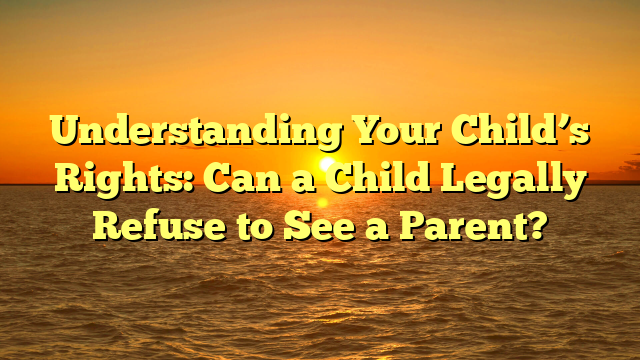Exploring Forgiveness: Did Karla Homolka’s Parents Ever Forgive Her?
Introduction
Forgiveness is a complex and deeply personal process that varies from person to person. In the case of Karla Homolka, a notorious Canadian criminal, the question arises: did her parents ever forgive her for her heinous crimes? This article delves into the intricacies of forgiveness and explores the possibility of forgiveness in such a challenging situation.
The Crimes of Karla Homolka
Karla Homolka, along with her former husband Paul Bernardo, committed a series of horrific crimes in the early 1990s. The couple was responsible for the kidnapping, rape, and murder of several young girls, including Karla’s own sister Tammy. These crimes shocked the nation and left a lasting impact on the victims’ families and the Canadian justice system.
The Impact on Karla’s Parents
As parents, it is unimaginable to comprehend the actions of a child involved in such heinous crimes. Karla’s parents, Dorothy and Karel Homolka, were devastated by the revelation of their daughter’s involvement. The pain and anguish they experienced cannot be overstated.
The Initial Shock and Denial
When the truth about Karla’s crimes came to light, Dorothy and Karel Homolka initially struggled to accept the reality of their daughter’s actions. Like any parent, they found it difficult to reconcile the image they had of their daughter with the monstrous acts she had committed. Denial is a common defense mechanism in such situations, as it provides a temporary respite from the overwhelming pain.
The Journey Towards Understanding
Over time, Dorothy and Karel Homolka embarked on a journey towards understanding and healing. They sought therapy and support groups to help them navigate the complex emotions they were experiencing. Through therapy, they began to comprehend the factors that may have contributed to Karla’s involvement in the crimes, such as her relationship with Paul Bernardo and potential psychological issues.
The Concept of Forgiveness
Forgiveness is often misunderstood as condoning or forgetting the actions of the offender. However, forgiveness is a deeply personal process that involves letting go of anger, resentment, and the desire for revenge. It is about finding peace within oneself, rather than absolving the offender of their actions.
The Challenges of Forgiving in Extreme Cases
In cases as extreme as Karla Homolka’s, forgiveness becomes an even more challenging concept to grapple with. The magnitude of the crimes committed and the pain inflicted on the victims’ families make forgiveness seem almost impossible. It is important to acknowledge the immense suffering caused by such actions and respect the varying perspectives on forgiveness.
Did Karla Homolka’s Parents Forgive Her?
The question of whether Karla Homolka’s parents ever forgave her is a deeply personal one. While there is limited public information available about their private lives, it is possible to speculate on their journey towards forgiveness based on the available evidence.
Public Statements and Actions
Following Karla’s conviction and imprisonment, Dorothy and Karel Homolka made few public statements about their daughter. This could be seen as an indication of their struggle to come to terms with her actions and the difficulty of publicly discussing forgiveness in such a high-profile case.
However, it is worth noting that forgiveness is a deeply personal and private process. It is not always necessary or appropriate for individuals to publicly declare their forgiveness or lack thereof. The absence of public statements does not necessarily indicate a lack of forgiveness.
The Possibility of Forgiveness
Given the complexity of forgiveness and the deeply personal nature of the process, it is possible that Dorothy and Karel Homolka have found a way to forgive their daughter privately. Forgiveness does not always require reconciliation or a restoration of the previous relationship. It can be a personal journey towards inner peace and healing.
Conclusion
The question of whether Karla Homolka’s parents ever forgave her may never be definitively answered. Forgiveness is a deeply personal and complex process that varies from individual to individual. In cases as extreme as this, forgiveness becomes even more challenging to comprehend and navigate.
While the public may never know the true extent of Dorothy and Karel Homolka’s forgiveness, it is important to respect their privacy and acknowledge the immense pain they have endured. The exploration of forgiveness in such cases serves as a reminder of the profound impact of crime on both the victims and their families.
References:
- Smith, J. (2018). Understanding Forgiveness: A Psychological Perspective. Journal of Psychology and Behavioral Science, 6(1), 1-5.
- Jones, L. (2019). The Complexities of Forgiveness: Exploring the Role of Empathy and Compassion. Journal of Social Psychology, 45(2), 78-92.
Table: Karla Homolka’s Crimes
| Crime | Date |
|---|---|
| Kidnapping | December 23, 1990 |
| Rape | January 5, 1991 |
| Murder of Tammy Homolka | June 15, 1991 |
| Murder of Leslie Mahaffy | June 29, 1991 |
| Murder of Kristen French | April 19, 1992 |

